Today I want to introduce to you a lady called Barbie Thomas.
Barbie is 37 and has no arms. She lost them when she was two, due to an accident with a transformer. She climbed onto the transformer, grabbed on the wires and the electricity burned her arms all the way to the bone.
“They were like charcoal,” says Barbie.
Her arms had to be amputated from shoulders down as a result.
The doctors said that she probably would not live, and that if she did, she would be a vegetable for the rest of her life. Luckily, Barbie recovered.
(This reminds me of Wilma Rudolph, whom I mentioned here. Wilma was hit by a series of deadly diseases as a child and the doctors told her mom that she could never walk again — but she grew up not just walking, but running, and later on becoming a record breaking Olympic champion at 21. In a way, Barbie bears similarity to Nick Vujicic — an inspiring man with no arms or legs, whom I mentioned in that same post.)
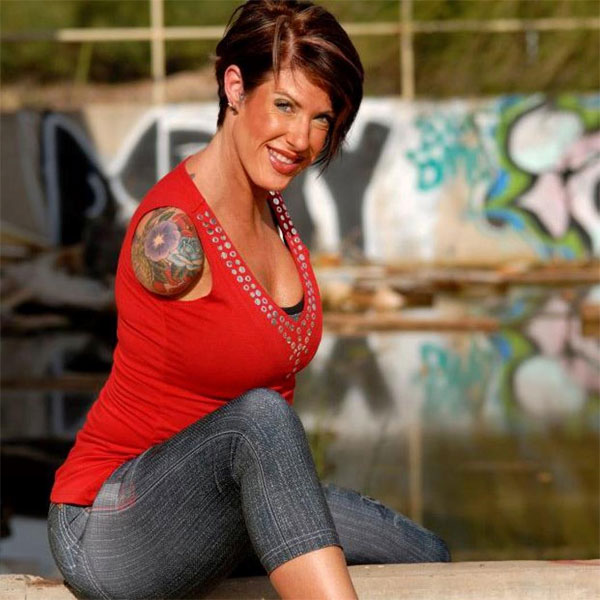
This is Barbie Thomas, who lost her arms when she was two
Today, Barbie is fearless: she does almost anything a person with arms can do. She drives, types email, dances, puts on her shoes, lifts weights, cooks, wears her clothes, and runs on the track… all by herself.
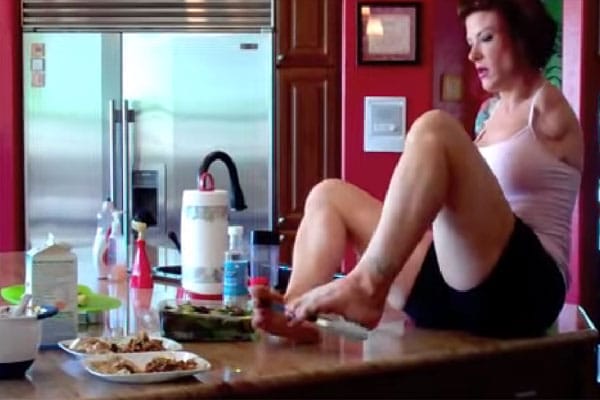
Barbie preparing roasted mashed cauliflower in a cooking tutorial. Watch: Lunch with Barbie.
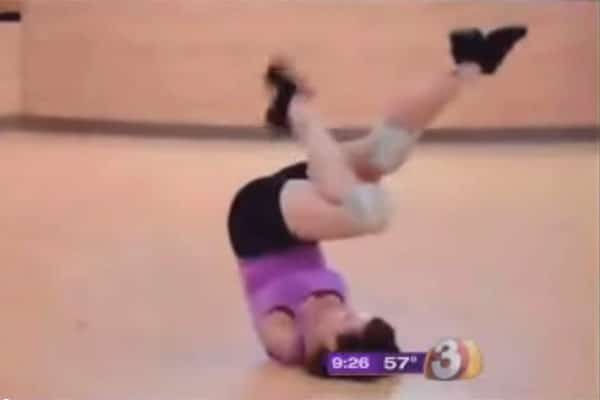
Barbie exercising on her back
Not only that, she is also a professional body builder.
Yes, you heard that right. A professional body builder. Have you ever complained about not being able to exercise because you’re “too tired,” because “the gym is too far away,” or because you “don’t feel motivated to work out”? I know I have.
Not only that,
- Barbie has been competing as a body builder in Phoenix, Arizona, against able-bodied women, since 2003.
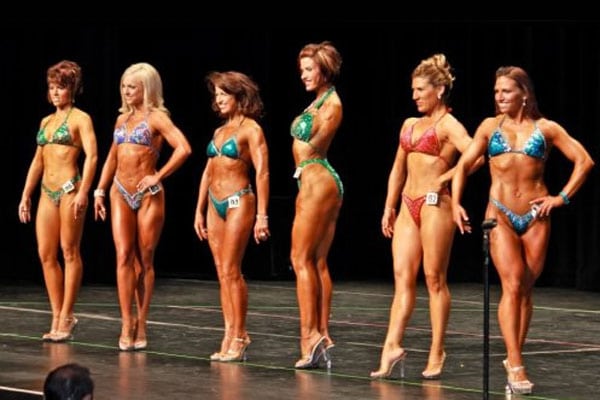
Barbie in a body builder competition, strutting her stuff
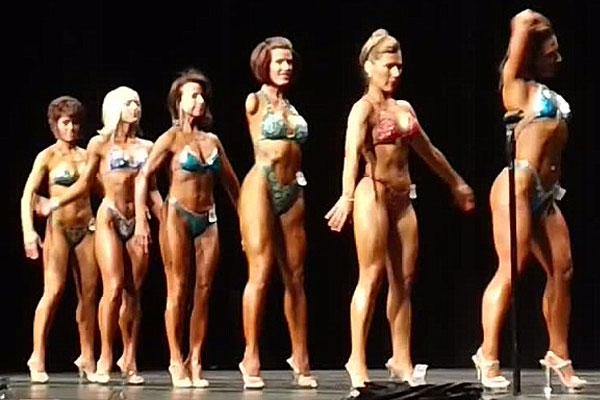
As Barbie says, “‘Can’t’ is NOT an option!”
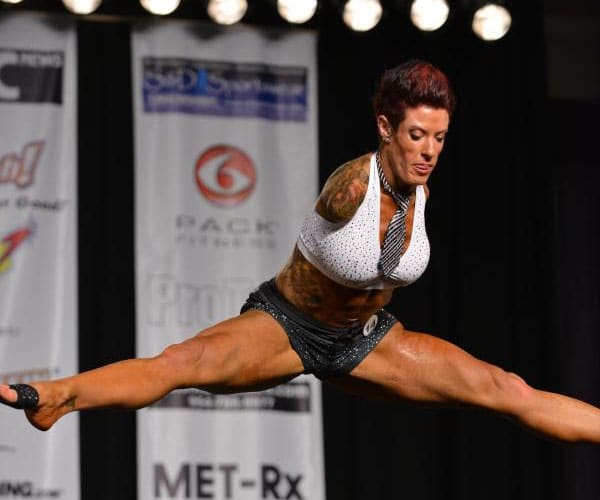
Barbie jumping, in another competition
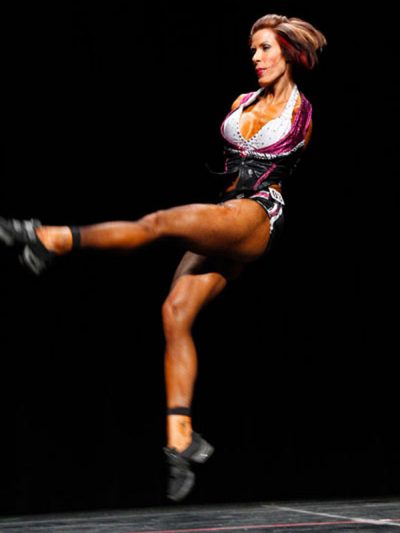
Barbie dancing while flawlessly maintaining her balance
- Since young, she has been dancing, swimming, and working out.
- If training isn’t enough to keep her busy, she has not one but two teenage sons aged 14 and 18, whom she cares for every day.
- She dabbles in modeling and intends to foray into acting, where there is a niche for limbless people in Hollywood.
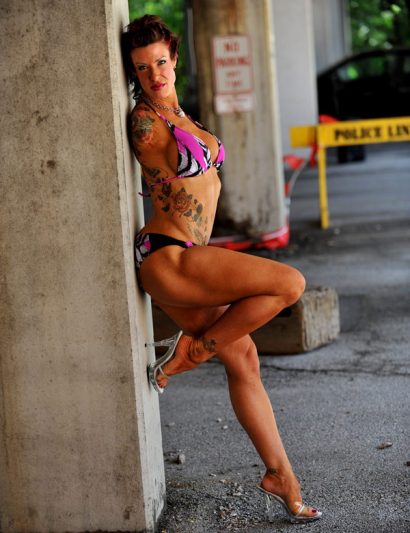
Barbie’s modeling shot
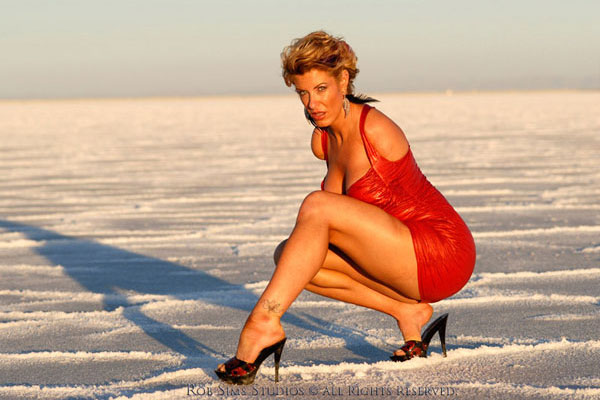
Another modeling shot of Barbie, this one on the beach
- She is also moving into motivational speaking to inspire others.
Barbie’s inspiration comes from this statement someone once told her, saying that “You know you cannot win.” And Barbie says that these words, to this day, “…light a fire under me like you’d not believe. Because when someone tells me that I cannot do something, I’d bust my buns to prove them wrong.“
Watch this short four-minute video where she shares her fitness routine and her inspiration:
As Barbie says at the end of the clip, when people say they “can’t” go to the gym, it’s not that they can’t. It’s that they won’t.
Barbie’s story speaks for itself, so I’m not going to add much here. While some may draw inspiration for fitness from her story, I feel that she is inspiring in all aspects of life. Barbie Thomas embodies drive, passion, persistence, diligence, and confidence when most would have given up hope. She is a true example of someone who lives life to the fullest when there are others with arguably better life circumstances but don’t even appreciate them or destroy them with negative, self-destructive eating patterns and bad habits.
Take a cold, hard look at your life now. My questions to you are:
- Are you living the life you’ve always dreamed of?
- Are you making the best out of your days?
- Can you be doing more?
- If “no” to Q1 or Q2, or “yes” to Q3, how can you turn things around, starting from today?
Change doesn’t happen immediately — it is a culmination of small steps taken every day. It all starts from today. For Barbie Thomas, it started when she was two and a half years old, when she was lying in her hospital bed after the accident. As she saw her mom in the room, Barbie reached out with her legs and gave her mom a hug — hence starting her life journey of using her legs and feet in place of hands to accomplish what she wants in life.
How about you? What’s your starting moment going to be? And how can you carry this forward?
Get started here:
Learn more about Barbie:
- Fitness Unarmed — Barbie Thomas’ official website
- Fitness Unarmed Facebook Page – Barbie’s Facebook page
- Fitness Unarmed Barbie – Barbie’s YouTube channel
PS: Special thanks to reader Sam Chong for sharing Barbie’s story with me!
(Images: Barbie Thomas)









 Thanks for reading. If you like my free articles, join my private email list and get my latest updates and articles sent right to your inbox.
Thanks for reading. If you like my free articles, join my private email list and get my latest updates and articles sent right to your inbox.